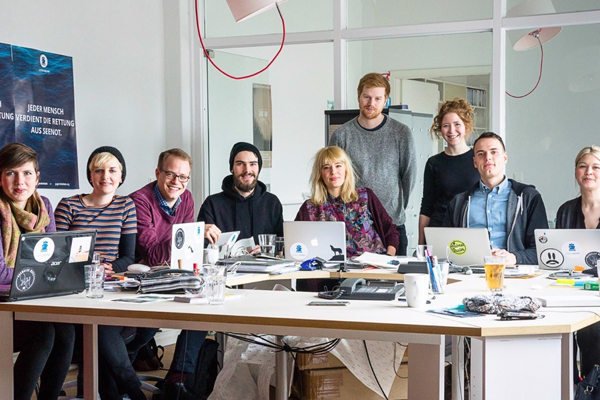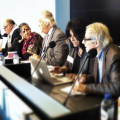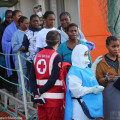Death at sea should not be normal. So we go and rescue them.
Around 2,500 in 2014; 5,429 in 2015; and 2,861 in these first few months of 2016[1]. These are not just numbers: these digits count the number of migrants and asylum seekers who have died while crossing the Mediterranean over the last three years. Numbers that very much resemble those of the lists of casualties in armed conflicts; except they are not caused by firearms or bombs, but by simple human indifference and neglect.
Jakob Schoen and Lena Waldhoff are 20 and 23 years old respectively. They are young, they come from Germany and they feel utterly outraged by the indifference that haunts Europe and the European governments around the issue of the death of migrants at sea. Feeling compelled to act, in the aftermath of the dreadful shipwrecks of Spring 2015, Jakob and Lena set up an association called Jugend Rettet, which mainly promoted a crowdfunding campaign in order to buy, renovate and equip a ship capable of sailing the Mediterranean Sea to rescue migrants from their grim fate. What they have built up is a professional, steady project that gained more than 300,000 euros in less than a year through two phases of crowdfunding. This allowed the young members of the association (whose membership has grown and expanded to other European countries since its birth) to pay for the ship’s restoration, equipment and basic crew. Today the ship has a capacity of one hundred passengers and the crew is composed of a mix of professionals such as doctors, skippers, humanitarian social workers and volunteers. Jugend Rettet believes it’s foremost important on the one hand, to have experts and highly skilleda workers and, on the other, to allow motivated young Europeans to take part in rescue operations of migrants at sea.
But the goal of the association is not only to see the ship sail and rescue human lives in danger in the Mediterranean Sea. On a greater scale, Jugend Rettet aims to build a European network to facilitate the exchange of views, opinions and experiences of teenagers and youngsters concerning the humanitarian and political crisis that is upsetting the continent. Currently, the association has nominated “ambassadors” in several Northern European countries, who have been tasked with advocating the association’s main initiative and with spurring a debate around the issue among young people.
The ship will soon set sail across the Mediterranean Sea on a six-month trial. More and more private and crowdfunded initiatives are getting involved in the search and rescue operations in the Mediterranean to save human lives. To what extent will this mark a shift in the humanitarian work paradigm?
[1] Data collected by the Missing Migrants Project of the International Organization for Migration. Available at: http://missingmigrants.iom.int/





